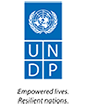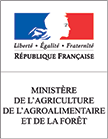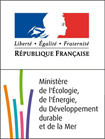How can we make progress on a new global climate deal without the ability to accurately measure emissions from deforestation and land use change around the world? What is the role of the communities, companies, and governments who manage the world’s carbon-rich lands? How can we equip these stakeholders with the tools they need to manage carbon successfully while growing economic opportunities?
“Pixel Perfection” will explore these questions with a diverse panel of speakers, while presenting potentially game-changing new technologies for measuring progress towards local and global goals.
At its core, the global climate challenge is also a land-use challenge. But measurement of progress towards climate goals is frequently hampered by a lack of reliable information about emissions from land use, which accounts for a full quarter of all anthropogenic emissions worldwide. Many countries and communities don’t have the information or technology available to monitor and evaluate forest carbon in near-real-time, which is a barrier to selecting priority areas for REDD+ interventions and evaluating their success.
In order to successfully reduce emissions from tropical deforestation and benefit communities, forests need to be better measured and monitored for success; countries need to reduce illegal deforestation and communities need to be empowered with secure land and resources rights new technology to help manage resources.
“Pixel Perfection” will kick-start the discussion with the public introduction of Global Forest Watch Climate, an online platform that provides the best available data on carbon emissions from tropical deforestation. The platform allows users to start to ask questions about deforestation emissions, make comparisons, and get meaningful answers. Users can visualize and analyze the best available data on deforestation, forest carbon stocks, and carbon emissions; compare climate impacts across different areas of interest, use the data interactively in real time, and generate custom analytical content to support policy decisions.
Experts from science and policy will also demonstrate for the first time a new satellite-based system for real time, 30×30 meter tree cover loss alerts on Global Forest Watch, which is already being used in key tropical countries.
We will then explore the current state of indigenous land rights and empowering local communities to effectively monitor their forests with appropriate technologies like the new Landmark mapping platform. A discussion between technology experts, country-level monitoring programs, and community experts will follow on how to best fuse these measuring and monitoring techniques moving forward.
Key questions addressed
- What are the biggest challenges in monitoring emissions from land use and, in particular, tropical deforestation?
- How can countries better fuse forest monitoring and secure land rights in their national commitments to halt GHG emissions from deforestation?
- How can we incite a dialogue around land-use emissions that engages forest communities to drive policy change and prevent illegal logging from the ground up?
Background reading
Securing Rights, combatting climate change
The Economic Costs and Benefits of Securing Community Forest Tenure
Baseline Map of Carbon Emissions from Deforestation in Tropical Regions





































